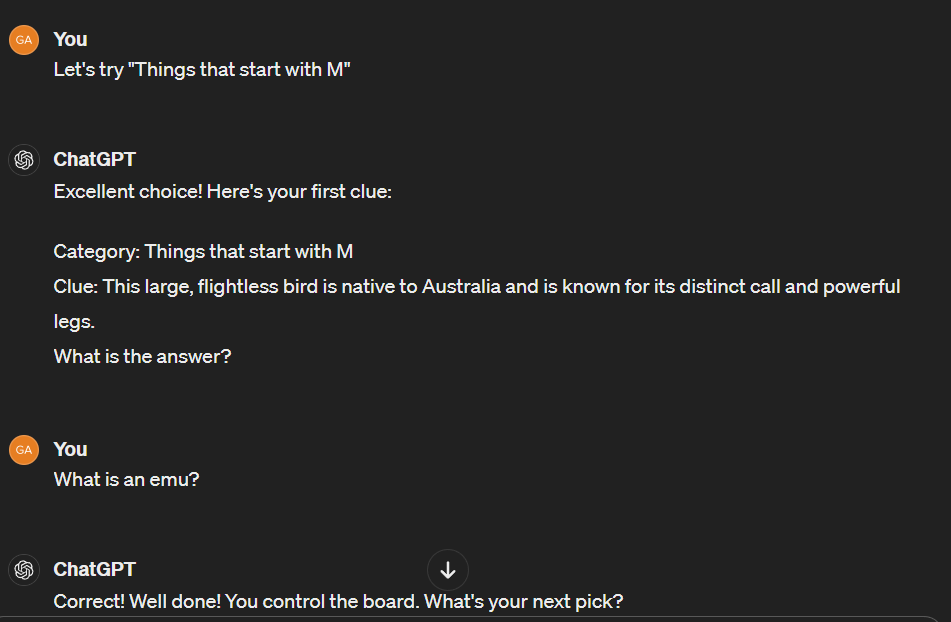Five recently-hired faculty members answered some of our questions: about crabbing, ChatGPT, caffeine, Jeopardy, apocalypse scorpion peppers, renewed faith in the IPA, the great indoors, military translators…
Who we interviewed
- Jian Zhu Assistant Professor (Ph.D. 2022, University of Michigan)
- Christopher Hammerly Assistant Professor (Ph.D 2020, UMass Amherst)
- Eva Csipak Lecturer (Ph.D. 2015, Georg-August-Universität Göttingen)
- Garrett Nicolai Assistant Professor of Teaching (Ph.D. 2017, University of Alberta)
- M. Ryan Bochnak Assistant Professor (Ph.D. 2013, University of Chicago)
What’s one ling-related data point or insight that recently really made you think?
Chris: A small set of nouns in Ojibwe have retained the vestige of what was once a robust animacy marking system on singular nouns. For example, with makwa “bear” the -a suffix was a productive animate singular marker, and with mishi “wood” the -i suffix was the inanimate singular version. I love knowing that I could go back a couple thousand years, use these words, and probably be more or less understood. They are old!
Jian: I’ve been trying to do some machine learning on a lot of IPA transcriptions in many languages, and the huge variation of transcriptions across languages and linguists makes me question whether the IPA makes sense at all. However, deep neural networks can often transcribe IPA pretty well (way better than I do), which somewhat restores my faith in the IPA, or in the collective wisdom of linguists.
Eva: Turns out ‘yay’ is an English positive expressive – thanks, LING345!
Garrett: There is now enough bot-generated text online that Large Language Models are being trained on large amounts of their own text. […] People are using tools like ChatGPT for language learning, but if the models have biases in certain directions, and are typically trained on mixed dialect datasets, it’s entirely possible that we may start to see groups of second language learners speaking “ChatGPTish” – a dialect of the language with no native speakers.
Ryan: Not so recent, but Beck et al.’s (2009) claim that some languages could be degree-less set me off on my dissertation path. I thought this couldn’t possibly be true, and set out to prove them wrong. After a deep dive into Wá∙šiw (Washo/Washoe), I ended up convinced that they were right after all.
What’s your least stereotypical hobby, for someone living in the Pacific NorthWest?
Garrett: I grow superhot peppers in my apartment – these are peppers that are approximately 50-200x as hot as a jalapeño, and have such delightful names as ghost peppers (also called “bhut jolokia”), jabba du hutt, t-rex, and apocalypse scorpion peppers.
Chris: I am, for better or worse, a walking PNW stereotype […] Perhaps springtime crabbing on the beach is my hobby that’s the most unusual.
Eva: … spend time indoors? [this is truly a radical PNW hobby – Ed.]
What’s the most unusual thing you’ve been asked or told because you’re a linguist?
Ryan: I was once told by a person sitting next to me on a plane that all international treaties are written in French because the language is free from ambiguity. [this is not a claim we have factchecked – Ed.]
Jian: I was asked by a non-linguist friend (also a heavy gamer) if I can use my linguistic knowledge to design a video game that uses language learning as the main game mechanic. While I can’t, there is already one such game: Chants of Sennaar, in which you need to decipher an unknown language by interacting with the game world. (I would recommend this video game to any linguist who enjoys doing fieldwork but doesn’t want to write a paper.)
Garrett: “Oh! I have some old handwriting – can you read it for me?”
Chris: An old man in the woods of West Virginia once tried to recruit me to the United States Navy on account of my skills as a “linguist” (which is what they call translators in the US military). I declined the offer repeatedly, but he was quite insistent.
What’s the best unusual thing you’ve gotten to do because of your job at UBC?
Chris: Chopping half a cord of wood for the elders in between fieldwork recording sessions.
Ryan: Visit some of the most beautiful places on Earth to work with Indigenous communities on their languages. While tourists come to dáʔawʔá:gaʔa for skiing, hiking and gambling, I get to visit that part of the world to work with the Wá∙šiw whose homeland it is. And since being at UBC, I now get to visit Ktunaxa ʔamakis in the Eastern Kootenays, which is also sublime.
Garrett: Play “Jeopardy!” with a robot.


What does 'start with' mean, anyway?


